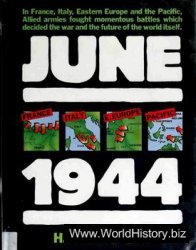Edward Lhuyd, Archaeologia Britannica (1707)
By the end of the seventeenth century the Celts were heading for extinction. Some would even argue that they were extinct. Certainly whatever self-conscious degree of Celtic identity had existed in the Iron Age did not survive the Roman Empire. Although there were still peoples who spoke Celtic languages, they themselves did not know this as the term had yet to be coined. They were, in any case, the descendents of insular peoples who had never shared in the Celtic identity, or, indeed, any other sense of common identity. It was well over a thousand years since anyone had described him - or herself as a ‘Celt’. That there are today millions of people in all corners of the globe who do identify themselves as Celts is largely the achievement of one man, an impoverished Welsh scholar called Edward Lhuyd, whose book Archaeologia Britannica did more than any other single work to define modern ideas about the identity of the Celts. However, Lhuyd’s scholarship did not resurrect the Celts by itself. His ideas struck a chord with the Celtic-speaking peoples of his day and provided a solution to particular problems that then confronted them.
Born in 1660 in Gian Ffraid in South Wales, Lhuyd was a native Welsh speaker. He remained committed to his Welsh identity and language throughout his life. Lhuyd’s childhood cannot have been easy, for he was the illegitimate child of a poor man, but he got a good schooling and in 1682 he became a student at St John’s College at Oxford University.
Lhuyd’s ambition had been to become a lawyer but at Oxford he began to study natural history under Dr Robert Plot, the keeper of the Ashmolean museum. Though he was an able student, Lhuyd struggled to support himself financially and he never completed his degree. In 1684 he took a job as assistant to Dr Plot at the Ashmolean and succeeded him as head keeper when he retired in 1690. Lhuyd’s work at the Ashmolean made him a respected academic. His studies of the flora of the Welsh mountains and the marine fossils of Oxfordshire attracted the attention of the leading scientists of the day: Sir Isaac Newton even paid for the publication of one of his books. Lhuyd brought a critical and open mind to his studies. At a time when most Europeans still believed the Bible to be literally true, he boldly questioned the commonly held belief that fossils were the remains of creatures that had perished in the Deluge.
Lhuyd published Archaeologia Britannica in 1707, a year of great significance in British history for other reasons too. One of Lhuyd’s main purposes in writing was to demonstrate that the Welsh had a separate, and older, historical identity than the English. Lhuyd had trekked round London trying to find a publisher who would finance his project, which would involve him in extensive travels in Britain, Ireland and Brittany, but no one would touch it unless he agreed to pay for publication himself. There was a stigma attached to vanity publishing even in the eighteenth century and Lhuyd knew that this would wreck any chance of his ideas being taken seriously. Instead, Lhuyd published his work with the support of subscribers, who included a fair cross-section of the great and good of his native Wales. In the event, the subscribers were rather disappointed with what they got for their money. They had expected a work of romantic antiquarianism, which was then popular. Instead, they were presented with a dry work of philology, comparing the Welsh, Cornish, Breton and Gaelic languages. Lhuyd had been warned that his work would not be well received: one bookseller had told him that not half a score people in the whole country would want to read it. In his introduction, Lhuyd justified himself, explaining that acquiring an understanding of the ancient languages of Britain was an essential preparation for the historical study that would follow in subsequent volumes. But there were to be no subsequent volumes: none had been completed before he died in June 1709, aged 49. Most of his unpublished manuscripts were bought for a private library where they were later destroyed in an accidental fire.




 World History
World History









